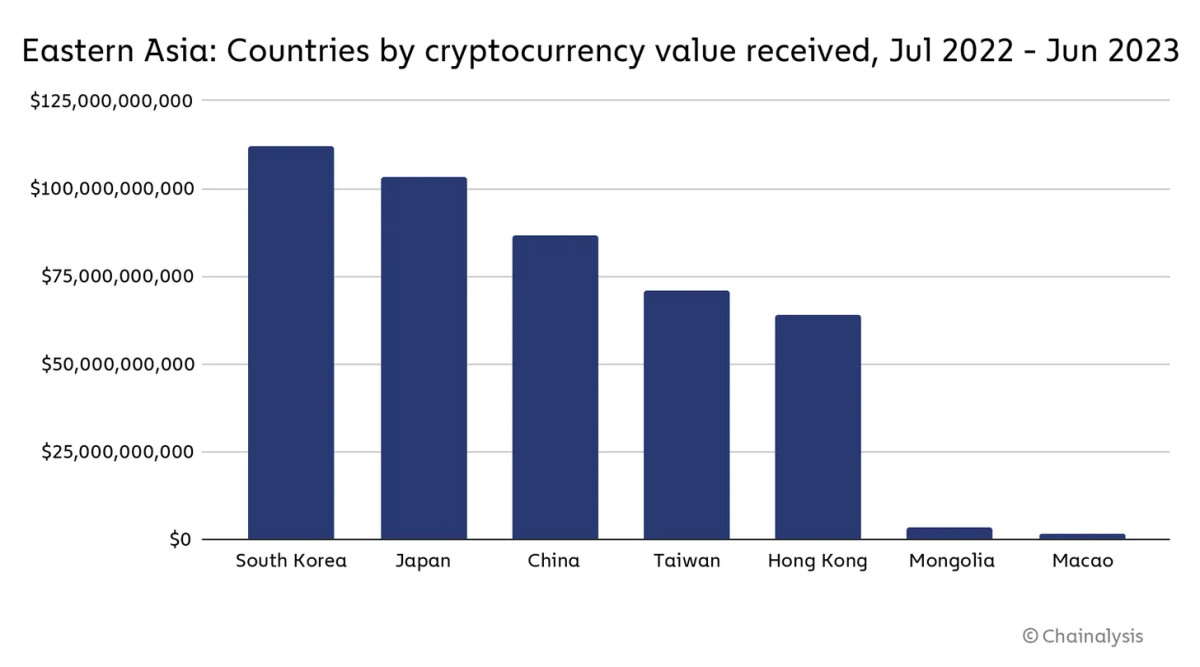The following is an excerpt from the latest issue of Bitcoin Magazine Pro, Bitcoin Magazine's premium markets newsletter. To be among the first to receive these insights and other on-chain Bitcoin market analysis directly to your inbox, subscribe now.

With the launch of a Bitcoin ETF in Hong Kong quickly approaching, new orders have come from an unexpected source: some of the largest traditional asset managers in mainland China.
The new Hong Kong ETF has been in the works for several months, and has attracted a significant amount of interest in the digital asset space around the world. Not only is its in-kind creation model a completely different protocol from the Bitcoin Spot ETF style popularized by the US, but it is also an important foothold for ETF acceptance in East Asia. The total assets under management (AUM) of approved Hong Kong futures has already crossed the $100 million mark in February, and the spot ETF has performed better in every country where it has received the green light. With this economic region enjoying significant capital investment and lots of international financial connections, Hong Kong would be an ideal candidate for a new testing ground in this market.
However, even the most optimistic readings of the situation did not anticipate the emergence of a new player in this field. By late March 2024, there was a raft of Hong Kong venture capital firms that had expressed some form of interest in launching their own ETFs, but only relatively few had submitted a formal application. This situation changed radically on April 8, when a series of big players from mainland China threw their hats into the ring. Both the Harvest Fund, which has total assets under management of more than US$230 billion, and the South Fund, which has more than US$280 billion in assets under management, have placed their respective applications through affiliates in Hong Kong. In addition, local media reported that China Asset Management, which has $270 billion in assets under management, has its own subsidiary entering into an unspecified partnership with existing Bitcoin ETF providers in the city.
Considering that there are already signs of the hype around ETFs in the US market waning, such news certainly comes as a breath of fresh air. Even if US ETF issuers, such as BlackRock or Fidelity, control several trillion in assets under management, the sudden emergence of these multi-billion-dollar companies is nothing to worry about. However, this raises the question of how smooth the interactions between these mainland companies and Hong Kong financial regulations will be. Isn't Bitcoin banned in China, where it is used among Chinese citizens almost clandestinely? How long will a partnership like this actually last? As it turns out, the blanket ban is somewhat exaggerated in the Western media. After all, if Bitcoin is purely smuggled in China, why would Chainalysis report $90 billion worth of transactions in one year?

Mainland China has certainly taken a tougher stance on Bitcoin in recent years. After Bitcoin mining was banned in 2021, one of the world's largest mining hubs dried up almost overnight. However, the apparent campaign leaves many windows open to the market. Basically, the main goal of the Chinese authorities was to raise the entry barrier and make it more inconvenient and difficult for ordinary citizens to continue accessing this market. Additionally, with many legitimate companies unable to operate, Chinese Bitcoin users are given an implicit warning: “If you get scammed, do not expect our help or sympathy.” Apparently, the quiet deals are worth several billion dollars.
It's the same ambiguous situation that makes these new ETF developments so encouraging. Three of the largest asset managers across China have signed on to the project in quick succession, and it is no small commitment; If these companies become ETF issuers, they will be involved in a business with record trading volumes and broad international interest. This wouldn't be the first time Chinese capital firms have invested heavily in Bitcoin-related projects, but mining rigs in remote Ethiopia are very different from financial instruments in a city that is legally part of China. By making this leap, these companies have found a way to legally entangle themselves with the world of Bitcoin, and this entanglement will mostly involve Chinese citizens.

Such a move could do a lot to show investors and regulators alike that the world of Bitcoin is nothing to fear but instead a very exciting opportunity. The above-mentioned in-kind model in Hong Kong means that new buyers will have to trade their reserved bitcoins for a corresponding share in an ETF rather than simply buying them with fiat currencies. In other words, there will be a direct and undeniable link between prestigious national companies and a trade that operates largely out of sight. Could this connection convince party officials that Bitcoin has a place in China after all? Will ETF issuers try to throw their weight around and push for Bitcoin's re-entry into the legal system? How will the complex relationship between the People's Republic of China and Hong Kong affect the entire arrangement?
Regarding the Hong Kong side of the arrangement, they appear to be fully committed to the dream of creating a regional cryptocurrency hub. Not only have local banks shown increased acceptance of the digital asset space as a whole, but this is a small thing compared to the news coming out of HashKey Global. South China Morning Newspaper It was reported on April 8 that HashKey Group, a Hong Kong-based exchange that deals only in Bitcoin and Ethereum, opened its new “global” initiative with an exchange based in Bermuda. HashKey announced the plan at the Web3 Festival, and the Bermuda operations are set to be just the first step in an ambitious project: the long-term hope is to “surpass US-based cryptocurrency giant Coinbase in trading volume within five years.” Very long order.
However, Chief Operating Officer Liviu Wong does not appear to be particularly concerned, telling… mail “We've seen their data and we don't think it's going to be difficult.” He added that most global competitors are either “easy to use but not compatible,” or “compatible but difficult to use,” and the challenges of Chinese regulation have given his company a significant lead in that department. It has been difficult to provide a practical and engaging service to customers while maintaining regulatory compliance, so lax restrictions around the world will make HashKey a big fish in a small pond. For example, the Bermuda Stock Exchange is already set to offer approximately 20 more digital assets than the original Hong Kong exchange. Chinese citizens living abroad are also a specific target demographic.
This kind of enthusiasm is definitely a bold statement in the world of Bitcoin! Even in a chaotic market like this, the champions of the stock market business will not be easily toppled. However, this kind of confidence was reportedly reflected in other attendees at the Web3 Festival, as the entire community pinned its hopes on the rising price of Bitcoin. Mainland companies are showing a real desire to enter the world of Bitcoin through Hong Kong, and companies based in the city are confident that they will be worth several billion dollars in a short time. Is it really so difficult to imagine that success here could change the whole paradigm for China?
For these reasons, observers around the world are keenly awaiting the establishment of the next Bitcoin ETF in Hong Kong. A new spin on the same financial instrument could shake up the entire model, providing a lifeline to ETFs internationally. However, if China steps back from its hostility towards Bitcoin, it could frankly be a bigger surprise than the ETF itself. For these reasons we should watch developments in this field carefully, as their impact seems likely to reverberate in one way or another. All signs look bullish for Bitcoin, and the next big opportunity could be just around the corner.

